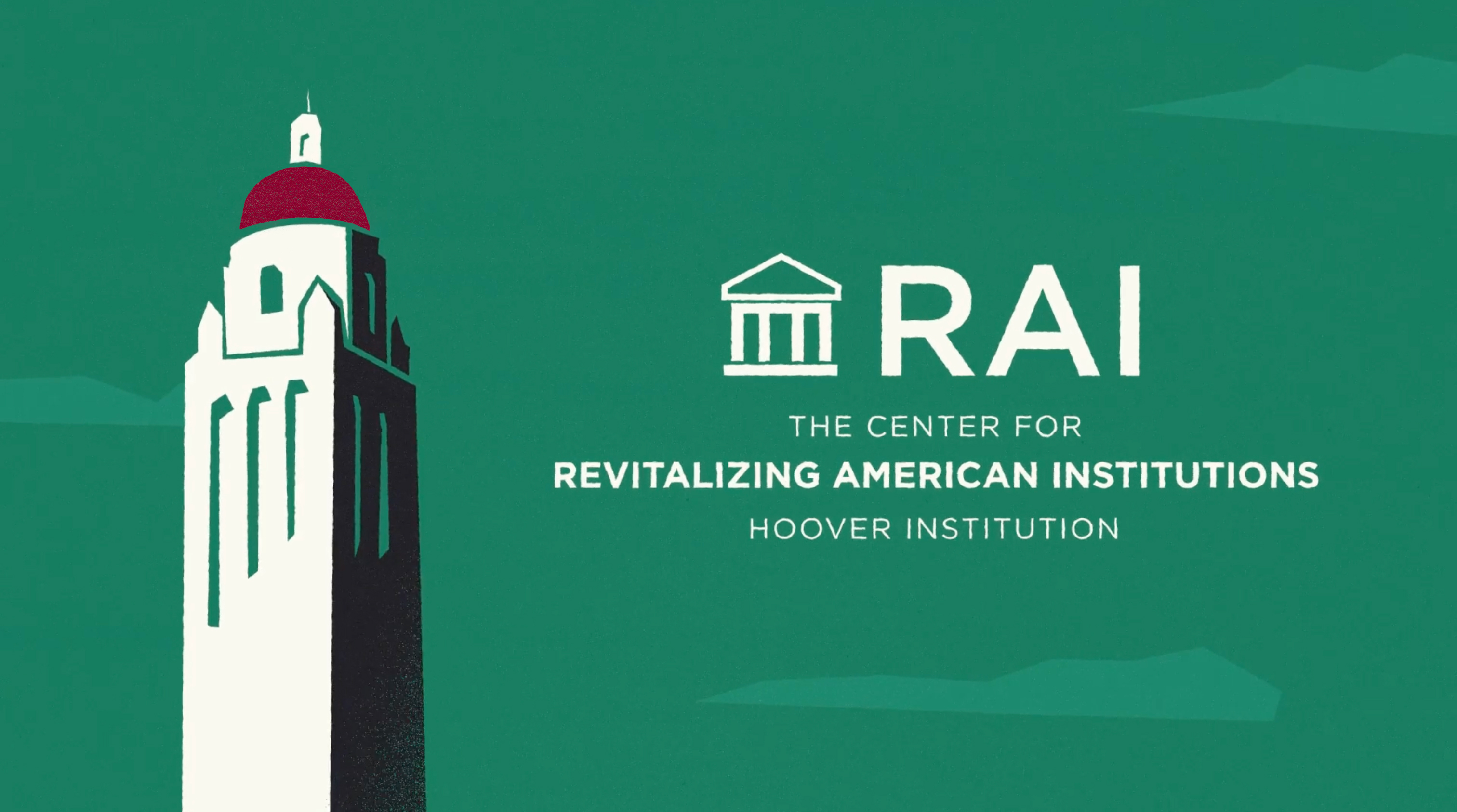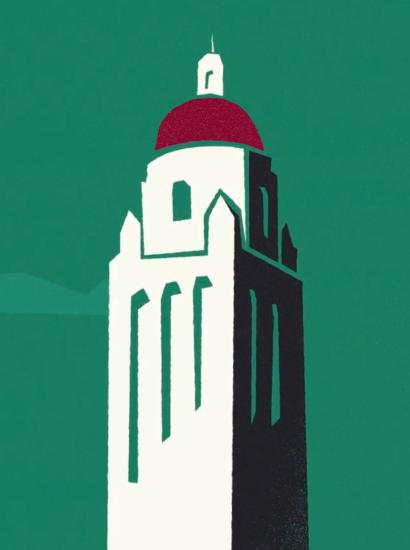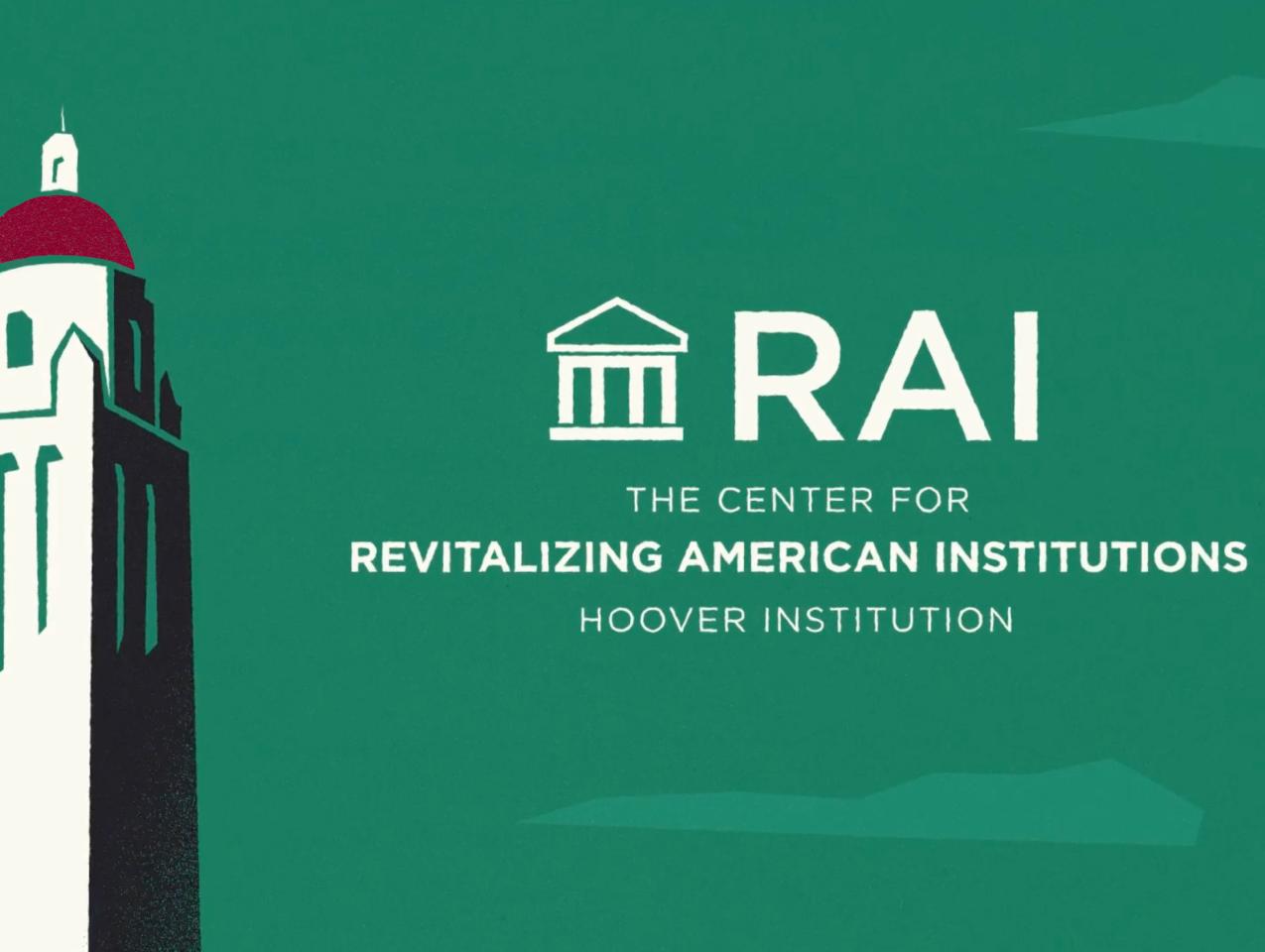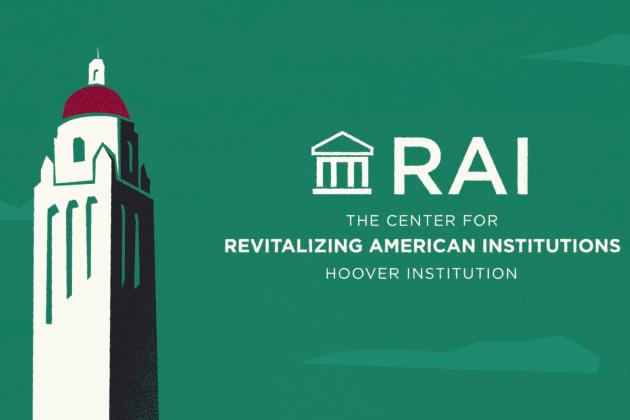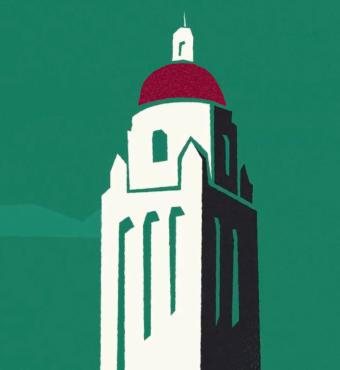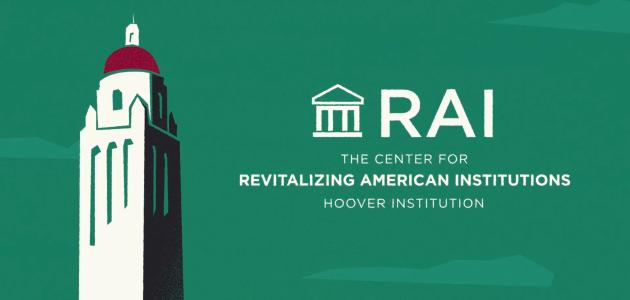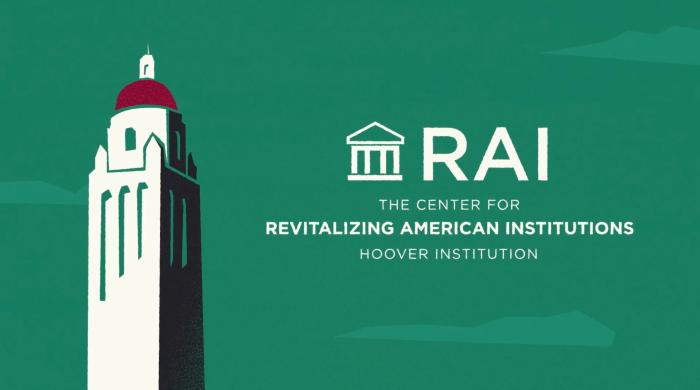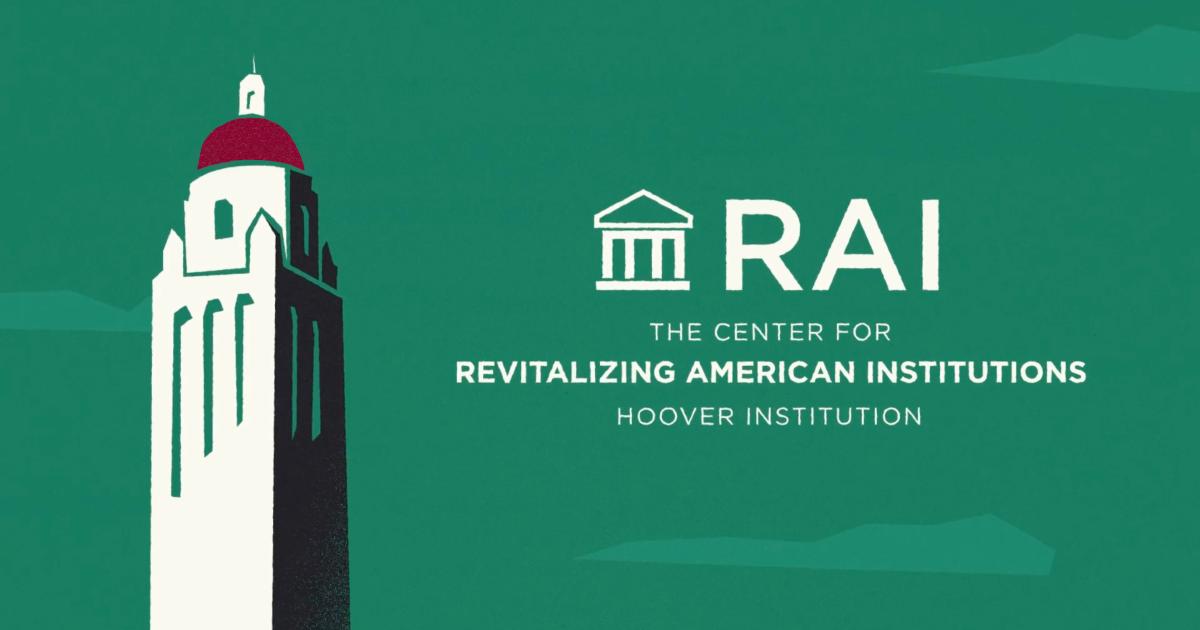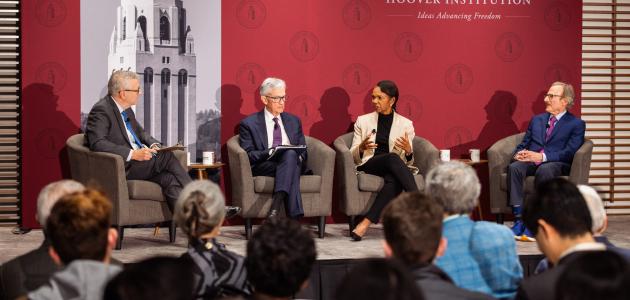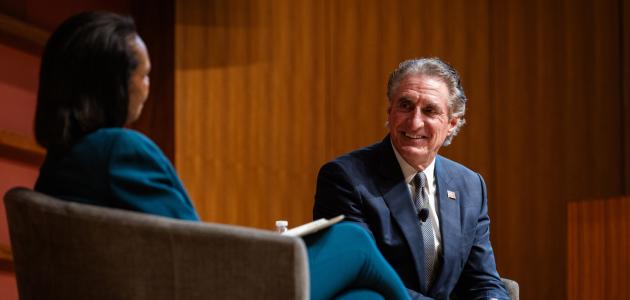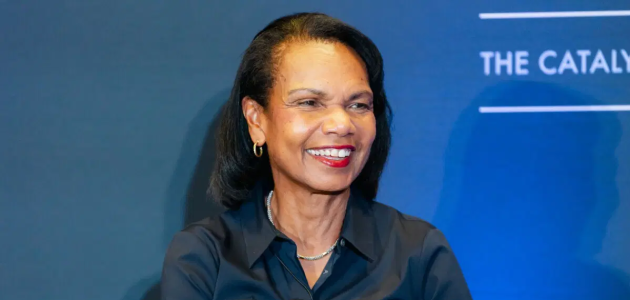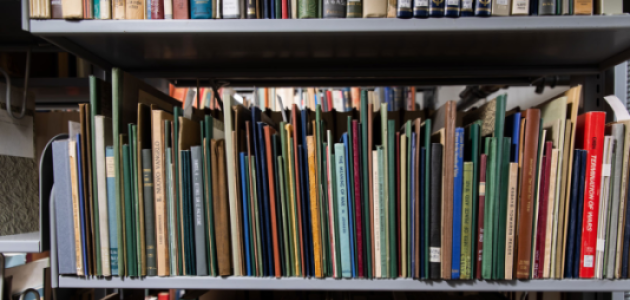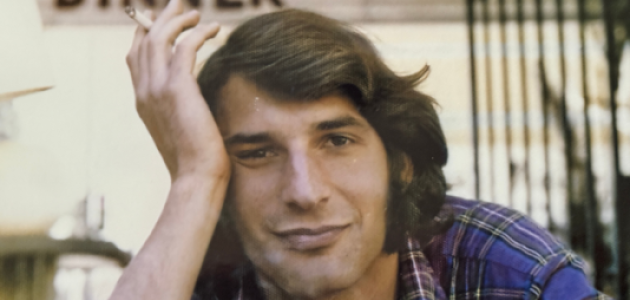In this edition of Inside RAI, we speak with Paul E. Peterson, author of The Modern Federalist Substack, about federalism, K–12 education, and the One Big Beautiful Bill. Andrew B. Hall releases new research about polarization among candidates seeking state legislative office. And Hoover convenes an all-star panel of pollsters to break down the 2024 US presidential election results and ask if the realignment underway today will continue beyond the age of Donald Trump.
Governmental Institutions
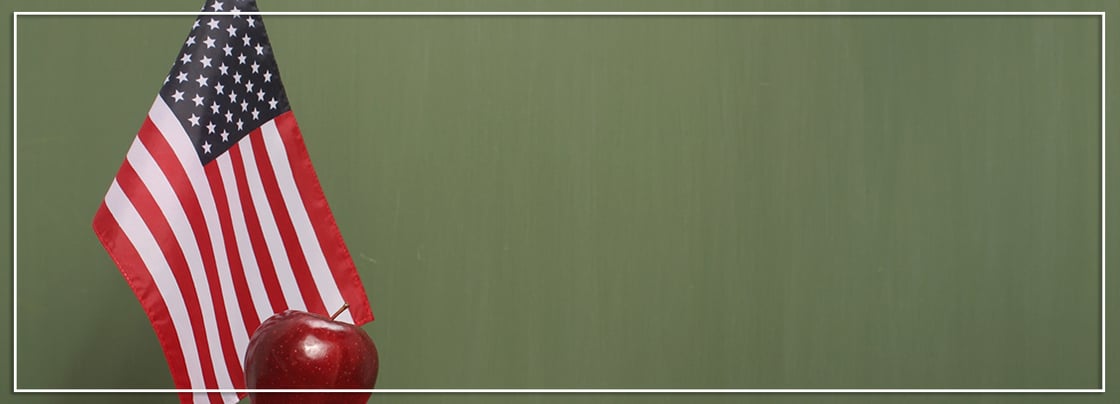
Discussing Politics with a Modern Federalist: Paul Peterson
Paul E. Peterson is a senior fellow at the Hoover Institution. He is a member of the Hoover Education Success Initiative, which focuses on the improvement of education policy and provides public education solutions for state education and policy leaders. In addition to education policy, Peterson’s research interests include federalism, social capital, and charter schools. He spoke to Chris Herhalt about federalism, the intersection of federalism and public education, and the One Big Beautiful Bill’s recent passage.
Chris Herhalt: A common theme of many of the posts in The Modern Federalist is the suggestion that the federal government is doing too much to prop up states fiscally and shield them from the consequences of their own overspending and waste.
Paul Peterson: The states and localities are responsible for as much spending on the domestic side as the federal government. It’s not as if we have a great big federal government and a small state and local system. We have two systems that are roughly equal in size.
Now, it’s true that the federal government is responsible for military matters, national defense, and international relations. But if you just focus on the domestic side of government’s responsibilities, the states play as large a role as the federal government. The national government’s main job is Social Security, Medicare, and Medicaid, the big entitlement programs; everything else is primarily a state and local responsibility. That includes schools, highways, sanitation collection, police and fire.
Read the rest of their conversation here.

This Federal Judge Made Me Feel Better About Our Democracy
Speaking to David Leonhardt for The New York Times’ Opinions podcast, Senior Fellow Michael McConnell explores the role of the courts in US President Donald Trump’s second term of office. They first discuss his early losses, including the rejection of his targeting of law firms that represented his opponents from his first term, and move to immigration rulings, and how Congress doesn’t really serve the role it’s supposed to when the same party controls it and the White House
McConnell also takes on the notion that courts are not operating fast enough to respond to all the efforts the Trump administration has undertaken. In fact, McConnell argues the courts are ruling and hearing at unprecedented speeds. They then move to the unique role of the Supreme Court and urges listeners not to apply their partisan leanings when evaluating the actions of the highest court in the land.
Listen or read their conversation here. (subscription required)
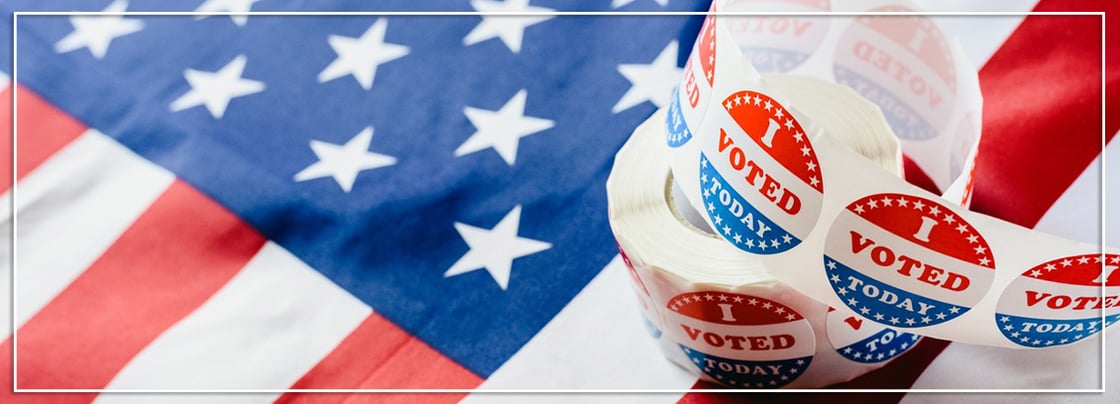
Polarization and State Legislative Elections
In the American Journal of Political Science, Senior Fellow Andrew B. Hall and two coauthors found the relative ideology of people seeking state legislative office over the last two decades has become more polarized. Looking at 48,000 candidates for state office across primaries and general elections from 2000 to 2022, the authors found the average gap in ideology between Democrat and Republican candidates has widened over that period.
Also, Hall and his colleagues find that “more-moderate candidates enjoy a meaningful advantage in contested general elections, but that advantage has declined somewhat in recent years. At the same time, more-extreme candidates are favored in contested primary elections.” They intend for this study to be the first step in exploring how polarization is impacting state elections and how “to understand how elections function in lower information, lower salience environments like American state legislatures.”
Read more here.
Organizations and Democratic Practice
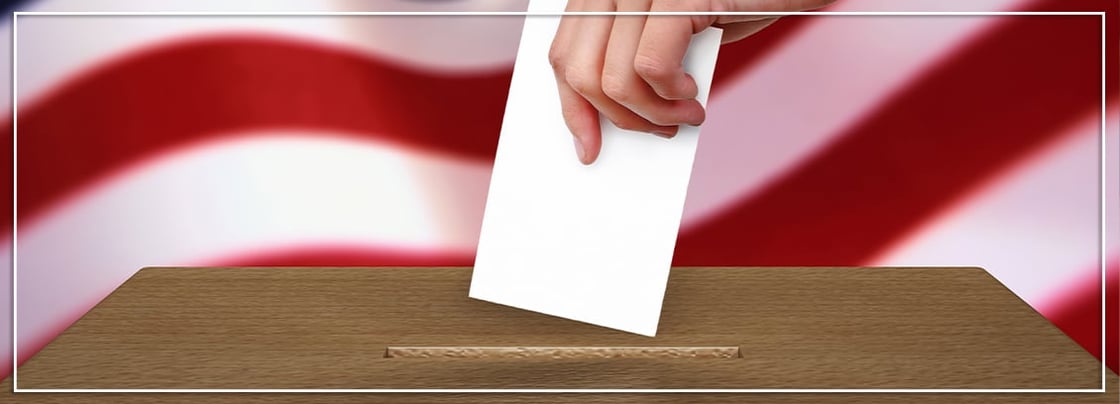
How the 2024 US Election Worked: Officials Gather at Hoover to Discuss
On June 18 and 19, a cross-section of election experts, practitioners, and policy observers gathered at the Hoover Institution to examine the current state of US elections, identify both achievements and shortcomings in the 2024 voting cycle, and discuss what elections may look like in 30 years.
On the whole, participants said the 2024 vote proceeded smoothly, but the future success of American elections is clouded by risks posed by emerging technologies, US election infrastructure that is aging toward obsolescence in some locations, and latent election denialism.
The gathering is part of a series dedicated to developing a long-term blueprint for credible, innovative, accessible, and ironclad future American elections. It was organized by Distinguished Visiting Fellow Benjamin Ginsberg and Hoover’s Center for Revitalizing American Institutions, in concert with initiatives Pillars of the Community and the Election Official Legal Defense Network.
Read more here.

The Crisis of the Media Environment
In a new post on his blog at Reason.com, Senior Fellow Eugene Volokh republishes an essay he wrote about the American media’s failure to overcome and expose efforts to hide President Joe Biden’s mental decline in the lead-up to the 2024 presidential election. It took until the debate in late June 2024 for many voices in the press to wake up to what was obvious to others, giving the Democrats a very short timeline to select a new candidate. With time to hold a full primary, Volokh writes, perhaps “that candidate would have been more effective than Kamala Harris. Or perhaps the candidate would have still been Harris, but a Harris who was seen as having more legitimacy with the public.” Instead, significant criticisms of Biden’s acuity were dismissed by his supporters as disinformation, and large swaths of the press went along, until it was too late.
Read more here.
Democratic Citizenship
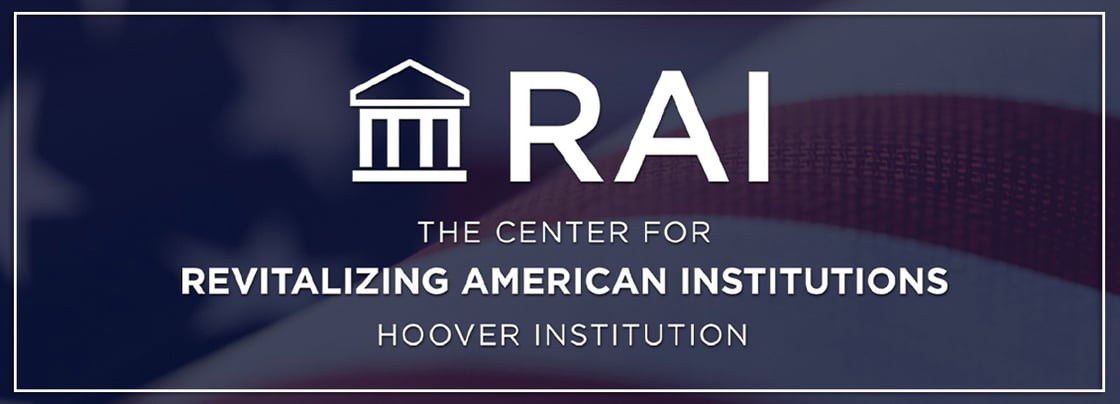
Pollsters’ Perspectives: Did 2024 Realign US Politics ... Beyond the Age of Trump?
While last year’s US presidential election didn’t lack for historical quirks—an incumbent president dropping out of the race soon before his party’s convention; for only the second time, a former president returned to office—opinions differ as to the campaign’s long-term effect on America’s political landscape. In a special edition of Matters of Policy & Politics hosted by Hoover Distinguished Policy Fellow Bill Whalen, a bipartisan slate of leading pollsters comment on the state of America’s two dominant political parties. They provide perspectives on the 2024 election, including assessments of what did and did not work in terms of messaging, how voting blocs shifted, and whether Democrats can rebrand and rebound by 2028 to take on Republicans, whose brand has been substantially reshaped by Donald Trump. The pollsters also assess the chances of Trump-style politics outlasting its term-limited namesake. This episode is presented in partnership with the Center for Revitalizing American Institutions.
Watch or listen to the episode here.
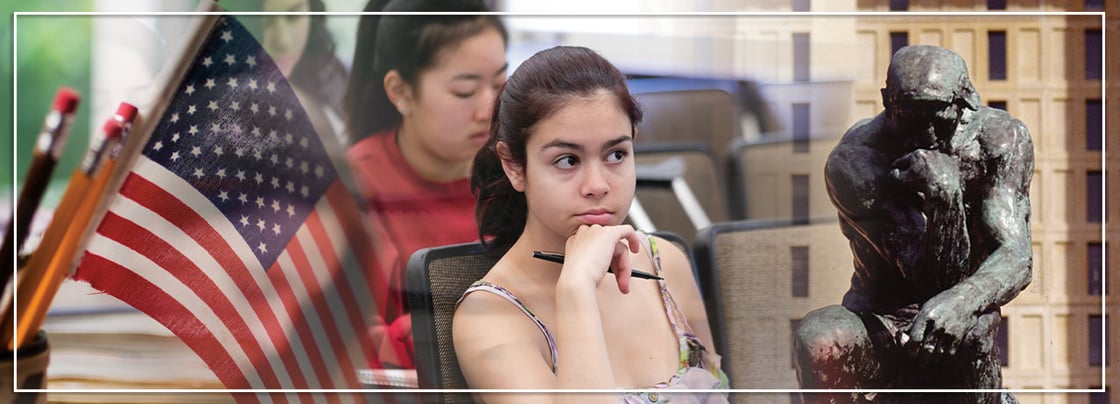
Alliance for Civics in the Academy
The Alliance for Civics in the Academy (ACA) officially launched in January 2025 with the mission of fostering a vibrant community of postsecondary educators dedicated to revitalizing higher education’s role in providing students with the knowledge, skills, dispositions, and experiences necessary for democratic citizenship. Since then, the network has grown to 183 members from over 90 campuses, representing a broad range of scholarly expertise, political perspectives, geographic regions, and institution types—from elite private colleges and R1 powerhouses to public comprehensives.
A core mission of the Alliance is to develop and disseminate the resources needed to advance civic education. Drawing on its talented and growing network, the ACA has curated a repository of dozens of course syllabi that serve as valuable models for educators designing their own civics courses. The ACA has further supported the field by compiling a repository of existing postsecondary civics initiatives and by fostering dialogue through its “Ideas” page, which hosts commentary, research, and policy perspectives on the pedagogy, practice, and broader role of civic education.
The Alliance also offers programming designed to strengthen professional community and deepen the field’s collective knowledge. The ACA provides members with the opportunity to organize and host convenings focused on the substance and practice of civic education in higher education. Additionally, the Alliance will launch a new webinar series this fall that will explore key challenges, innovations, and debates in civic education, with discussion topics and panelists drawn directly from its network.
To apply for membership to the Alliance, click here.
To nominate someone for membership, click here.
For more insight from the Center for Revitalizing American Institutions visit www.hoover.org/research-teams/center-revitalizing-american-institutions







